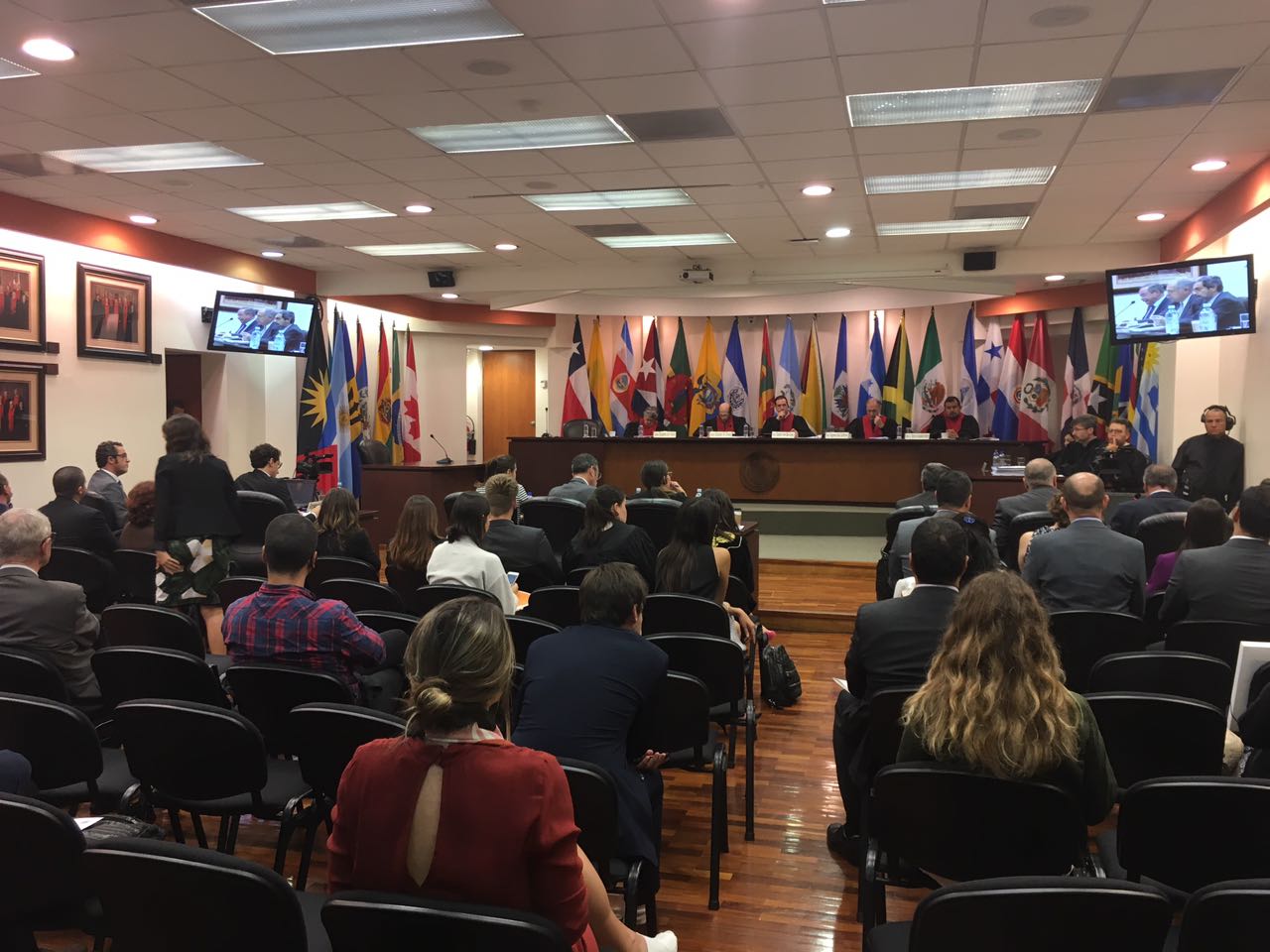Smoke screen
Brazil responds to Inter-American Court of Human Rights with outdated data on the prison system

 Brazil responds to Inter-American Court of Human Rights with outdated data on the prison system
Brazil responds to Inter-American Court of Human Rights with outdated data on the prison system
Brazil has claimed that the Inter-American Court of Human Rights, a body of the OAS (Organization of American States), violated international law and overstepped its authority by summoning the country to explain the situation in its prisons. The claim was made at a public hearing held this Friday, May 19, at the institution’s headquarters in San José, Costa Rica.
In the statement by the Brazilian delegation, the Court “overstepped the limits of its conventional mandate” by issuing a resolution with “generic accusations”. The resolution in question is an unprecedented ruling given in February this year in which the judges combined four cases of violations in Brazilian prisons into a “supercase” in order to verify the situation in the Brazilian prison system as a whole.
During the hearing, however, Brazil presented outdated and understated data, as well as generic and insufficient information, to refute the suspicions of the Court that there are “signs of a generalized nationwide structural problem with the prison system”. The most recent statistics cited by the representatives of Brazil in the hearing were from Infopen (National Prison Information Survey), referring to December 2014. Conectas used the Freedom of Information Law to request the publication of more recent data, but the request was denied. Experts believe that the number of prisoners in Brazil now exceeds 700,000, more than the figure of 622,000 claimed by the Ministry of Justice.
Some of the figures informed during the hearing were understated: according to the Brazilian State there were 37 killings throughout the entire prison system in 2013, a year marked by a series of violent uprisings in the Pedrinhas prison complex, in the northeastern state of Maranhão. However, data from the Ministry of Justice and the Maranhão State Prison Administration Department reveal that at least 78 people were killed that year at the Pedrinhas complex alone.
“The statement by Brazil was notable for its cynical tone. The authorities said that human rights violations had been remedied in the prisons, and went so far as to demand that the measures issued by the Court be revoked,” said Guilherme Pontes, a lawyer at the NGO Justiça Global.
According to Henrique Apolinário, a lawyer for the Justice program at Conectas Human Rights, the “data and information collected by the petitioning organizations during recent prison inspections demonstrate that the situation is still very serious and that the violations are systematic. Whatever minor improvements have been made are isolated and do not come close to resolving the structural problems of the prison and youth detention system,” he said.
Inter-American Court Judge Eugenio Raúl Zaffaroni drew attention to the report submitted by Brazil, which makes it clear that “the Brazilian Supreme Court itself has recognized this situation [the widespread crisis in the prison system]”. He also described the country’s policy of mass incarceration as a “machine issuing prison warrants” and pointed out that adding the roughly 700,000 current prisoners to the 600,000 existing prison warrants, there would be 1.3 million prisoners in Brazil.
“One in every hundred Brazilians is involved in a criminal case. Something strange is going on. This is not normal. I want to draw attention to this. They are putting the criminal system, the criminal process, at the center of Brazil’s institutionality. It’s not right,” he concluded.
Watch the video of the hearing
Supercaso
Supercase
The resolution issued by the Inter-American Court of Human Rights of the OAS combined complaints related to four cases: the Pedrinhas Prison Complex, in Maranhão; the Curado Complex, in Pernambuco; the UNIS Youth Detention Center, in Espírito Santo; and the Plácido de Sá Carvalho Prison, in Rio de Janeiro.
The resolution also requested answers from the Brazilian government to 52 questions on the country’s prison system, emphasizing specific data from the monitored facilities, and recommended concrete measures in 11 areas to prevent human rights violations in the prisons. Finally, it informed about the visit of the Court’s judges to the country on a date yet to be determined.
Click here to read the resolution issued by the Inter-American Court.


